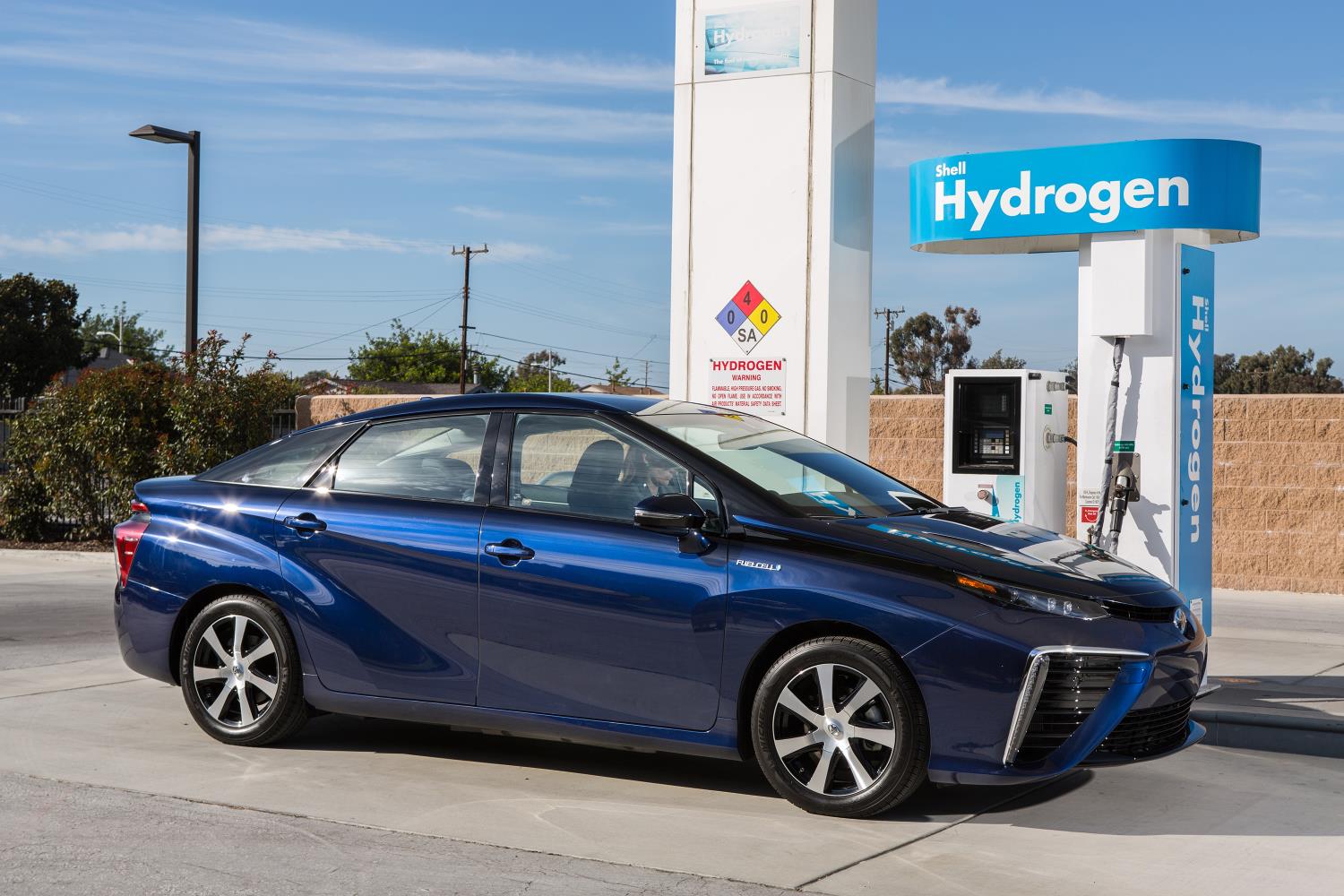Toyota and Shell one step closer to a hydrogen refueling network in California
; Date: February 17, 2017
Tags: Hydrogen »»»» Toyota »»»» Fuel Cell Vehicle »»»» Shell »»»» California Fuel Cell Partnership

Seven hydrogen stations and $16 million award proposed by the California Energy Commission
Torrance, Calif., February 20, 2017 -- On February 17, The California Energy Commission (CEC) posted a Notice of Proposed Award (NOPA) outlining subsidies to support hydrogen refueling infrastructure in California. Shell, in partnership with Toyota, will be considered for the installation of hydrogen refueling equipment into seven retail stations in the state of California and an award of $16,362,500 to develop those stations.
The NOPA marks an important step forward in California’s aspiration for broader deployment of low-carbon fuels and vehicle technologies, via its CEC’s Alternative and Renewable Fuel and Vehicle Technology Program.
“Providing accessible, reliable and convenient refueling is key to mainstream adoption of fuel cell vehicles,” said Craig Scott, advanced technology vehicle senior manager, Toyota Motor North America. “Shell’s partnership will bring the expertise and resources of a major energy company to hydrogen infrastructure efforts in California. The team of Toyota and Shell will bring us one step closer to a hydrogen society.”
“Hydrogen electric vehicles could play an important role in improving air quality while offering convenience to motorists,” stated Oliver Bishop, Hydrogen General Manager, Shell. “This kind of collaboration between government and industry is central to making hydrogen a reality. It’s a great opportunity to encourage a growing number of hydrogen fuel cell vehicles on the roads and support the carbon reduction goals of the State.”
For more information about the NOPA issues on February 17, 2017; please refer to:
http://www.energy.ca.gov/contracts/GFO-15-605_NOPA.pdf
Toyota is supporting hydrogen infrastructure development through a number of collaborations. In California, Toyota entered into a financial agreement with FirstElement Fuels to support construction and operation of 19 fueling stations across the state. In 2016, Toyota announced a collaboration with Air Liquide to develop and supply a phased network of 12 state-of-the-art hydrogen stations targeted for New York, New Jersey, Massachusetts, Connecticut, and Rhode Island.
Shell is taking part in various initiatives to encourage the adoption of hydrogen as a transport fuel. In Germany, Shell is working with the government and industry partners in a cross-sector joint venture, H2 Mobility Germany, to support the development of a nationwide expansion of hydrogen refueling stations. Shell currently operates two hydrogen refueling stations in California, both located in Los Angeles.

